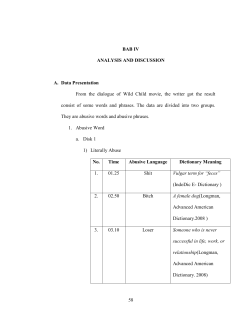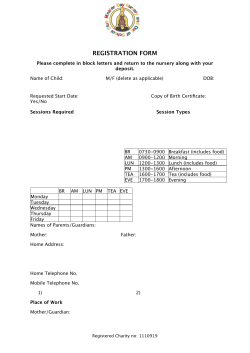
Opium Tea
Opium Tea U . S . EWS Report 000002 D E P A R T M E N T O F J U S T I C E March 2, 2010 Several SENTRY subscribers in Colorado, Texas, and Washington have reported the emergence (or resurgence) of tea brewed with various parts of opium poppy plants (poppy tea). According to medical examiners in these states, five adult male decedents ingested poppy tea shortly before their deaths; most also tested positive for other illicit substances. Since several deaths have occurred in which the ingestion of poppy tea was identified, SENTRY is issuing this watch. Poppy tea is generally brewed from the seeds, pods, and/or straw of the opium poppy (papaver somniferum), an annual plant that primarily grows in Mexico, South America, Southeast Asia, and Southwest Asia. Poppy seeds contain trace amounts of opiates, including morphine, thebaine, codeine, papaverine, and noscapine. Poppy pods contain a greater amount of these opiates. Poppy straw is a mixture of crushed seeds, pods, and/or stems. Poppy tea brewed from poppy pods and poppy straw is more potent and potentially more likely to cause an opiate-related overdose. Poppy straw is the most common ingredient used for poppy tea. It is generally mixed with warm water and produces an intensely bitter drink. The darker and more bitter the tea, the more potent. In order to counteract the bitterness, some abusers add flavorings. Some abusers also evaporate poppy tea over low heat to make a thick, concentrated liquid or a dry powder. They typically place the concentrated liquid or dry powder in gel caps and use the gel caps to measure dosage. Additionally, some abusers add poppy straw directly to yogurt and other foods. If you would like to report an emerging drug issue in your area or have questions or comments about SENTRY, please e-mail us at www.justice.gov/ndic/sentry 319 Washington Street 5th Floor, Johnstown, PA 15901-1622 • (814) 532-4601 NDIC Publications are available at www.justice.gov/ndic March 2, 2010 Drug Alert Watch Poppy seeds are legal in the United States; they are typically used in baking and can be purchased in a variety of stores and farmers’ markets. All other parts of the poppy plant, including poppy pods, poppy straw, and poppy straw concentrate (in liquid, solid, or powder form) are controlled under Schedule II of the federal Controlled Substances Act. Despite their control, poppy pods (which contain poppy seeds) are commonly available for purchase over the Internet. Poppy tea is consumed by users for its narcotic, analgesic, antidiarrheal, and/or psychoactive effects. Users initially experience a warming sensation of the skin and body upon drinking the tea. Thereafter, pupils tend to constrict, and the face, neck, and outer extremities flush. An elevated mood change follows, along with a state of euphoria and well-being. Some users report a sensation of light pressure on the back of the neck, drowsiness, and loss of concentration. Adverse effects, which increase with dosage, include sleepiness, mild stomachache, lethargy, itching, slowed breathing, and nausea. At high doses, death can occur through respiratory depression or pulmonary aspiration of vomit. Effects of the tea begin within 30 minutes and may last up to 8 hours. Chemical dependency typically builds up after 1 or 2 weeks of daily usage, but varies by individual. Posted: 03/02/2010 POC: SENTRY Management Team, www.justice.gov/ndic/sentry or (814) 532-5888 2
© Copyright 2025





















